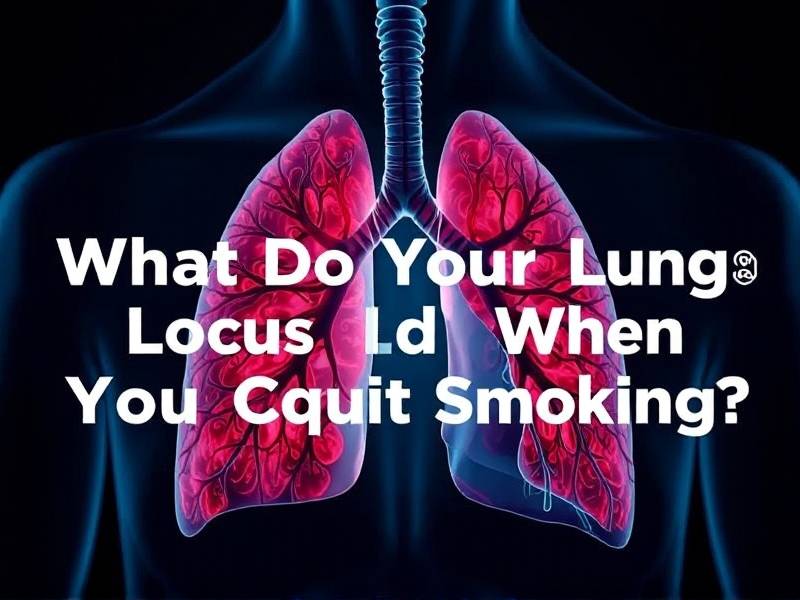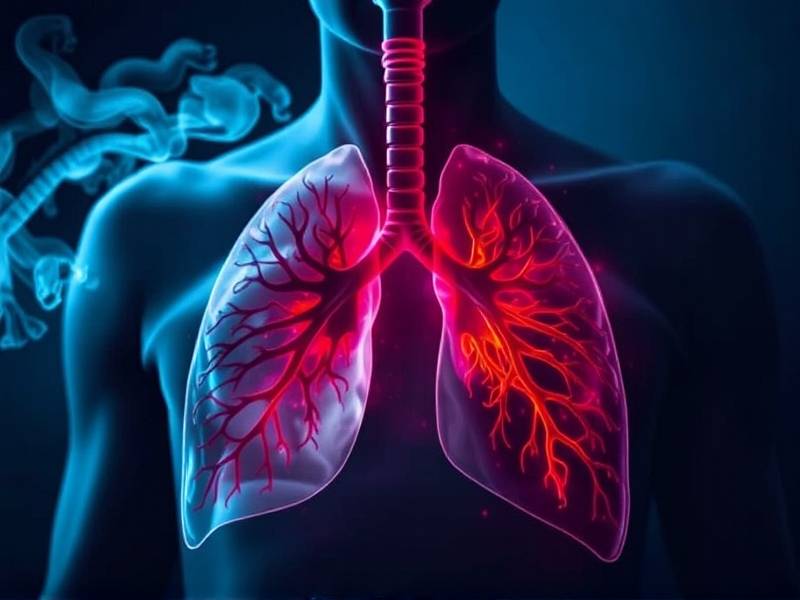What Do Your Lungs Do When You Quit Smoking?
Unveiling the Transformative Journey of Your Lungs After Quitting Smoking
Introduction: Quitting smoking is a significant step towards a healthier life, and it brings numerous benefits to your body, especially to your lungs. Have you ever wondered what happens to your lungs after you quit smoking? This article will delve into the fascinating journey of lung rejuvenation, providing you with valuable insights into the transformative changes that occur when you decide to kick the habit.
I. The Damage Caused by Smoking: Before we explore the positive changes, it's crucial to understand the damage caused by smoking. The harmful chemicals in cigarettes can lead to chronic obstructive pulmonary disease (COPD), emphysema, and lung cancer. These conditions not only affect your breathing but also decrease your overall quality of life.

II. The First 48 Hours: As soon as you quit smoking, your body begins its healing process. Within 48 hours of quitting, the carbon monoxide levels in your blood drop significantly, allowing more oxygen to reach your heart and muscles. This initial phase sets the stage for a series of remarkable improvements.
III. The First Week: During this period, you'll start experiencing increased energy levels and improved sense of taste and smell. Your lungs will also begin to clear out mucus and debris accumulated from years of smoking. This process can be uncomfortable at times but is a sign that your body is actively repairing itself.

IV. The First Month: After just one month of quitting smoking, you'll notice a significant decrease in coughing and shortness of breath. Your lung capacity will start improving as well, enabling you to breathe more easily during physical activities.
V. The First Year: Within one year of quitting smoking, the risk of heart disease decreases by half compared to continuing smokers. Your lungs continue to heal during this time, reducing inflammation and scar tissue formation.
VI. The Long-Term Benefits: The long-term benefits of quitting smoking are substantial:
- Reduced risk of lung cancer: After 10 years without smoking, your risk decreases by about half.
- Improved respiratory health: Quitting smoking helps prevent COPD and reduces the severity of asthma.
- Increased lifespan: Studies show that smokers who quit before age 50 gain an additional 10 years on average compared to those who continue smoking.
VII. Embracing a Healthier Lifestyle: To maximize the benefits for your lungs and overall health after quitting smoking, it's essential to adopt a healthier lifestyle:
- Engage in regular physical activity
- Maintain a balanced diet rich in fruits, vegetables, whole grains, and lean proteins
- Avoid secondhand smoke
- Stay hydrated
Conclusion: Quitting smoking is not just about breaking a habit; it's about giving your lungs a chance to heal and rejuvenate themselves. By understanding the transformative journey that occurs after quitting smoking, you'll be motivated to embrace this positive change in your life. Remember that every day without cigarettes brings you closer to improved health and well-being!
